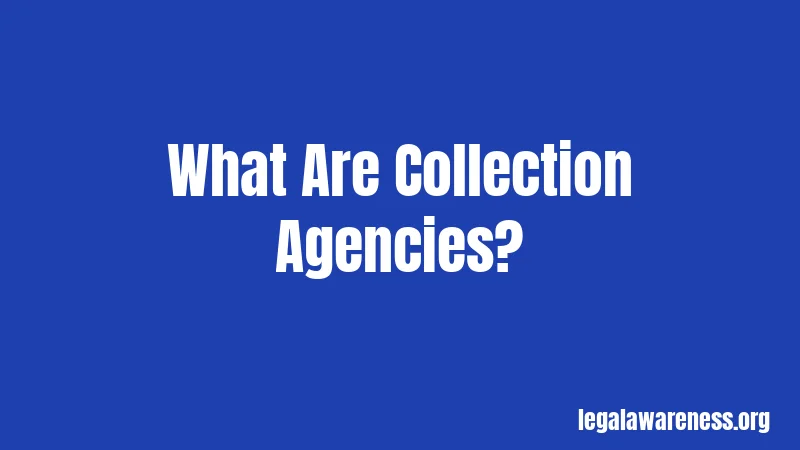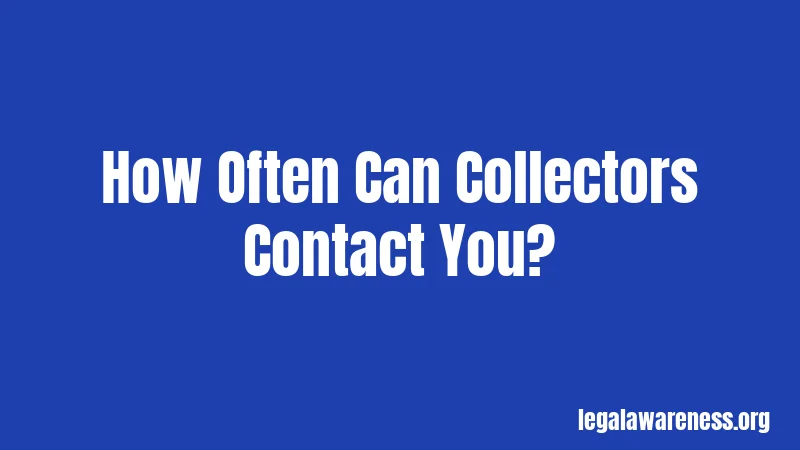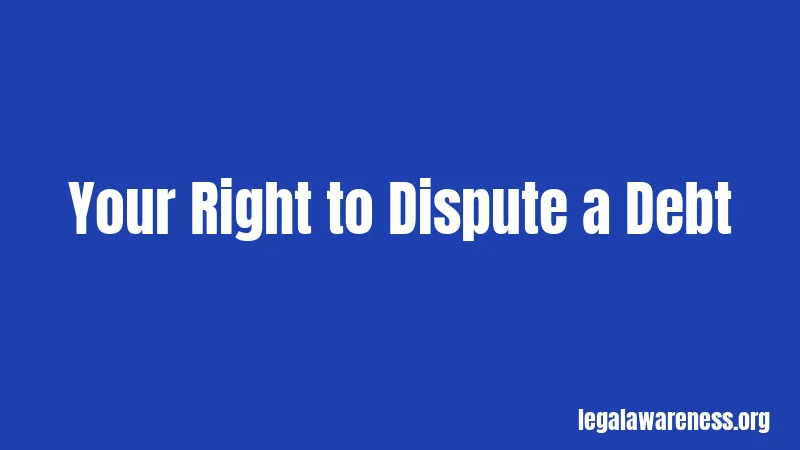Collection Agency Laws in New York (2026): Rules That Protect You
Most people don’t realize just how strict New York’s debt collection laws are. Seriously. These laws have gotten a major upgrade in the past few years, and they’re designed to protect you from aggressive collectors. Let’s break down exactly what you need to know.
What Are Collection Agencies?

Collection agencies are companies that try to collect money you owe. They might be collecting for your credit card company, hospital, or any business you owe money to.
Here’s the thing. Some collection agencies are legit. Others? Not so much. That’s why New York has strict rules they must follow.
The Big Changes You Should Know About
New York just rolled out major changes to debt collection laws. The Consumer Credit Fairness Act changed things in 2021. Then NYC added even more rules in 2025.
Trust me, these changes matter.
Statute of Limitations Got Shorter
Used to be, collectors had six years to sue you for unpaid debts. Now? Only three years. This change happened in April 2022.
Here’s what makes this even better. Making a payment on an old debt doesn’t restart the clock anymore. It used to. Not anymore.
So if a debt is more than three years old, collectors can’t sue you for it. They can still ask you to pay. But they can’t take you to court.
NYC’s New Rules (Starting April 2025)
If you live in New York City, you get extra protection. The Department of Consumer and Worker Protection created new rules that went into effect April 1, 2025.
These rules are pretty comprehensive. They limit how often collectors can contact you. They make collectors prove the debt is real. And they protect you from sketchy tactics.
How Often Can Collectors Contact You?

Okay, this one’s important.
In NYC, collectors can only contact you three times in any seven-day period. That’s across all methods. Phone calls, texts, emails, everything counts.
But wait, it gets better. If you reach out to them first, that doesn’t count against the limit. Only their attempts to contact you matter.
Outside NYC? Federal rules still apply. Collectors can’t harass you with constant calls. But the three-per-week limit only applies in the city.
What Collectors Must Tell You
Within five days of first contacting you, collectors must send you a validation letter. This letter has to include specific information.
You’re gonna love this one. The letter must tell you:
The name of who you originally owed money to. How much you owe right now. How much of that is interest and fees. Your right to dispute the debt. Whether the debt is too old to sue over.
For medical debts, they have to tell you something else. Medical debt can’t be reported to credit agencies in New York. Most people don’t know that.
Time-Barred Debts Get Special Treatment
If your debt is older than three years, collectors have extra rules to follow. They must tell you the statute of limitations might have expired. They have to warn you that suing over expired debt violates federal law.
In NYC, they can’t even contact you about time-barred debt right away. They have to send a written notice first. Then they wait 14 days before calling you.
Makes sense, right?
Your Right to Dispute a Debt

Not sure if you actually owe this money? You can dispute it.
You can dispute a debt in three ways. You can call and tell them. You can write a letter. Or you can email them if they communicate electronically.
What Happens When You Dispute
Here’s where NYC’s rules really shine. When you dispute a debt, the collector must stop all collection activities for 45 days.
During those 45 days, they have to verify the debt. They need to prove you actually owe it. And they need to prove the amount is correct.
If they can’t verify it? They have to leave you alone.
What Information Can Collectors Demand?
Collectors can request information to verify your identity. They can ask for your address. They might ask for your employer’s name.
But there are limits. They can’t ask for your Social Security number over the phone. They can’t demand bank account information unless you’re setting up a payment.
And they absolutely cannot share your debt information with other people. Your family, friends, or coworkers don’t need to know about your debt.
Prohibited Collection Practices
Some things are just illegal. Period.
Collectors cannot threaten you with arrest. They can’t pretend to be lawyers if they’re not. They can’t lie about how much you owe.
They also can’t contact you at work if you tell them not to. They can’t call you before 8 AM or after 9 PM. And they can’t use profanity or abusive language.
Wondering if something they did crossed the line? If it felt wrong, it probably was.
Harassment Is Illegal
Repeated calls designed to annoy you are harassment. Publishing your debt information publicly is harassment. Threatening violence or harm is definitely harassment.
Don’t put up with it.
Special Rules for Medical Debt
Medical debt gets treated differently in New York. Collectors can’t report medical debt to credit bureaus. This protects your credit score from medical emergencies.
NYC has another rule about medical debt. If you dispute one medical debt from a provider, your dispute extends to all debts from that provider within six months.
Pretty straightforward.
Licensing Requirements
In NYC, collection agencies must be licensed. The Department of Consumer and Worker Protection handles licensing.
Unlicensed collectors can’t legally operate in the city. If they try to collect without a license, any judgment they get is null and void.
There’s currently proposed state legislation to require licensing statewide. This hasn’t passed yet. But if it does, all collectors in New York would need a Department of Financial Services license.
Penalties for Violations
Breaking these rules has consequences. Real ones.
In NYC, fines start at a few hundred dollars per violation. For repeated violations, they can reach $3,500 per violation.
Some violations can even result in criminal penalties. The law takes this seriously.
What You Can Get
If a collector violates your rights, you might be able to sue. Under proposed state law, you could get actual damages or $3,500, whichever is greater.
In some cases, courts can triple the damages up to $10,000. This happens when collectors willfully violated the law.
The Attorney General can also go after bad collectors. They can seek penalties between $100 and $10,000 per violation.
Record-Keeping Requirements
NYC requires collectors to keep detailed records. They must log every attempt to contact you. Every phone call, email, text message, everything.
They have to keep these records for three years. And they have to make them searchable.
If you request your records, they have to provide them. This helps you prove violations if needed.
How to Protect Yourself
Okay, pause. Read this carefully.
Always get everything in writing. When a collector calls, ask them to mail or email the information. Don’t rely on what they tell you over the phone.
Keep your own records too. Write down dates and times of calls. Save letters and emails. Note what was said during phone conversations.
If something feels off, it probably is.
Validate Every Debt
Don’t just assume the debt is correct. Request validation within 30 days of their first contact.
The validation should include proof you owe the debt. It should show the original creditor. And it should break down how they calculated the amount.
If they can’t validate it, they can’t collect it.
Zombie Debts Are a Real Problem
“Zombie debts” are debts that keep coming back. They’ve been paid. Or they’re too old to collect. But collectors still try.
New York’s laws specifically target zombie debts. The three-year statute of limitations helps. The validation requirements help too.
Honestly, this is the part most people miss. Just because someone says you owe money doesn’t mean you do.
What to Do If You’re Being Harassed
Document everything first. Keep a log of every contact. Save voicemails and emails.
Tell them in writing to stop contacting you. Send the letter by certified mail. Keep a copy for yourself.
If they don’t stop, you have options.
File a Complaint
You can file complaints with several agencies. The NYC Department of Consumer and Worker Protection handles NYC complaints. The New York Attorney General’s office handles state complaints. The Consumer Financial Protection Bureau handles federal complaints.
File with all of them if you want. The more agencies that know, the better.
Consider Legal Help
If the violations are serious, talk to a lawyer. Many consumer lawyers offer free consultations. Some work on contingency, meaning they only get paid if you win.
You’re not alone, this confuses a lot of people. But you have rights. And you can enforce them.
Proposed Statewide Licensing
Right? There’s a bill in the state legislature right now. It would require all debt collectors in New York to get licensed.
The bill has been proposed for years. It keeps getting reintroduced. In 2025, it’s Senate Bill 4271 and Assembly Bill 5537.
If it passes, collectors would need to get a license from the Department of Financial Services. They’d need surety bonds between $25,000 and $75,000. And they’d face stricter oversight.
We’ll see if it finally passes in 2026.
Interest Rates on Judgments
If a collector does sue you and wins, they can charge interest on the judgment. But the rate is limited.
For consumer debts against individuals, the interest rate is only 2% per year. This changed in April 2022.
Before that, it was 9% per year. The new lower rate protects consumers from debt growing out of control.
When Collectors Can Sue
Remember the three-year statute of limitations? That’s crucial.
Collectors can only sue if it’s been less than three years since your last payment. Or less than three years since you defaulted, whichever is later.
Once three years pass, they’re legally barred from suing. They might still try to collect informally. But they can’t take you to court.
Sound complicated? It’s actually not.
Default Judgments and New Protections
Sometimes people get sued and don’t respond. The collector gets a default judgment.
New York now requires collectors to prove more before getting default judgments. They need affidavits showing the debt is real. They need to prove the statute of limitations hasn’t expired. They need to show proper service.
These requirements help prevent collectors from getting bogus judgments against people who don’t realize they’ve been sued.
Debt Buyers Face Extra Rules
Debt buyers are companies that buy old debts for pennies on the dollar. Then they try to collect the full amount.
They face stricter rules in New York. They must provide a complete chain of title showing how they got the debt. They need affidavits from the original creditor. And they need detailed proof of the debt’s history.
Many debt buyers can’t meet these requirements. Their records are incomplete. This helps you fight back.
Call Recording Notifications
In NYC, collectors must tell you at the start of every call that it might be recorded. They have to say the recording could be used for debt collection.
This applies to every call. Even if you call them first.
It’s basically a mini-Miranda warning for debt collection. You have the right to know when you’re being recorded.
Language Access Rights
NYC’s rules require collectors to provide information in multiple languages. If you request materials in another language, they must provide them.
Validation letters must be available in English and Spanish at minimum. Other languages are available on request.
This ensures everyone can understand their rights, regardless of which language they speak.
How to Request Debt Validation
Send a written request within 30 days of the collector’s first contact. Email works if they’ve emailed you. Otherwise, send a letter by certified mail.
Your request should say something like: “I am requesting validation of this debt under New York and federal law. Please provide documentation proving I owe this debt and the amount is accurate.”
Simple as that.
What They Must Provide
The collector must send you detailed information. This includes the original contract or credit agreement. The charge-off statement if applicable. A breakdown of the current balance.
They also need to show the chain of title if the debt was sold. Each sale must be documented.
If they can’t provide this, the debt isn’t validated. They have to stop collection efforts.
Credit Reporting Restrictions
Medical debt can’t be reported to credit bureaus in New York. This is a huge protection.
For other debts, NYC requires 14 days’ notice before reporting to credit agencies. Collectors must tell you in writing that they plan to report the debt. You get two weeks to respond.
This gives you time to dispute errors before your credit gets dinged.
Understanding Your Rights During Lawsuits
If a collector sues you, you have specific rights. The lawsuit must include detailed information about the debt. It must show the original creditor. It must have the last four digits of your account number.
The court must send you an additional notice. This notice explains your rights and provides resources.
You can raise improper service as a defense in your answer. You don’t lose this defense if you don’t file a separate motion right away.
Free Resources Available
New York provides free resources for people dealing with debt collection. The New York State Courts website has consumer credit resources. The Attorney General’s office provides guidance. Legal aid organizations offer free help to qualifying individuals.
Don’t try to handle everything alone. These resources exist to help you.
Frequently Asked Questions
Can a debt collector contact my family about my debt? No. Collectors can only discuss your debt with you, your attorney, credit reporting agencies, and the original creditor. They need your written consent to talk to anyone else about your debt.
What happens if I make a partial payment on an old debt? Under New York’s current law, making a payment does not restart the statute of limitations. Your debt still expires three years from your last payment or default, whichever was later.
Can collectors call me at work? Only if you haven’t told them to stop. Once you tell them (preferably in writing) not to contact you at work, they must stop. Continuing to call after that is illegal.
Are debt collectors required to accept payment plans? No. Collectors aren’t required to accept payment plans. However, many will negotiate if you reach out to them. Get any payment agreement in writing before sending money.
How do I know if a debt is past the statute of limitations? Count three years from either your last payment or the date you defaulted. If it’s been more than three years, the statute has likely expired. Request validation to confirm the dates.
Final Thoughts
New York’s debt collection laws are among the strongest in the country. The three-year statute of limitations protects you from old debts. NYC’s new rules give city residents even more protection.
Know your rights. Document everything. Don’t be afraid to fight back when collectors cross the line.
And remember, you’re not alone in this. Millions of New Yorkers deal with debt collectors every year. The law is on your side.
References
- Consumer Credit Fairness Act – New York Attorney General
- New York City Department of Consumer and Worker Protection – Debt Collection Rules
- NY State Senate Bill S4271 (2025) – Licensing Consumer Debt Collectors
- New York Courts – Consumer Credit Reform Resources
- New York State Department of Financial Services – Industry Letter on Consumer Credit Fairness Act
